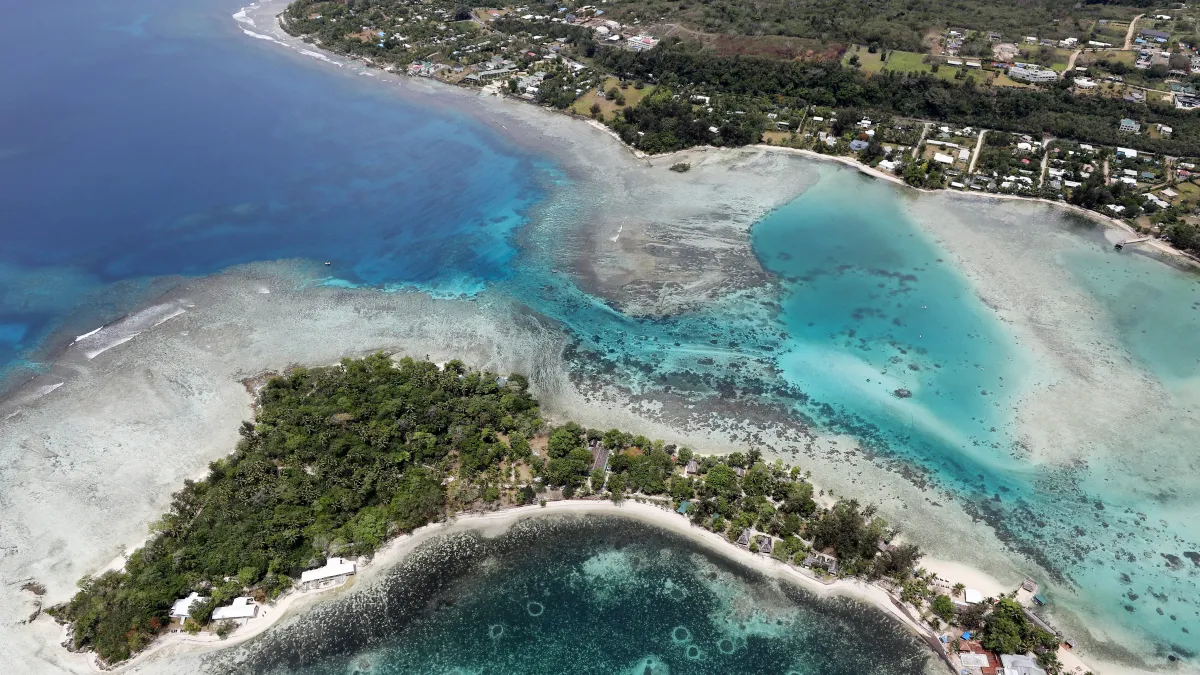A Reef Turned to Rubble: Vanuatu's Environmental Collapse
Ten years ago, the reefs of Havannah Harbour, Vanuatu, were a sanctuary of vibrant marine life — bustling coral forests teeming with color and biodiversity. Today, they are ghostly reminders of climate devastation. A chain of calamities — Cyclone Pam in 2015, sediment runoff, predatory crown-of-thorns starfish, twin cyclones in 2023, and a powerful earthquake in 2024 — have left behind what divers like John Warmington describe as a "coral graveyard."
These natural disasters are no longer rare. Vanuatu is now experiencing the brunt of climate change at an accelerated rate. Sea levels around its shores are rising at 6 mm per year — well above the global average. In some tectonically active regions, the rate is even higher. The environmental degradation is not limited to coral reefs — it is altering coastlines, contaminating freshwater supplies, and upending agriculture and education systems across the island.
Climate Justice at the World’s Highest Court
Vanuatu's plight has become a symbol of the Global South’s disproportionate burden in the climate crisis. In an unprecedented move, Vanuatu has brought the matter to the International Court of Justice (ICJ), seeking an advisory opinion on the legal responsibilities of states to address climate change.
This initiative, supported by over 130 countries, represents a pivotal moment in international climate law. The court's opinion, though not legally binding, could establish norms that redefine the accountability of major carbon emitters and bolster demands for climate finance and loss-and-damage reparations by vulnerable nations.
Vanuatu’s legal action follows years of frustration over the slow pace of global climate diplomacy. “Seeing large, polluting countries just continue business as usual and not take the climate crisis seriously can get really sad and disappointing,” said 16-year-old climate activist Vepaiamele Trief. For her generation, the courtroom becomes a battleground for survival.
Children in Tents and Fields in Ruin: The Human Toll
For the people of Vanuatu, climate change is not a debate — it’s daily life. More than 70% of the population relies on subsistence farming. With every cyclone, crops like cassava, banana, and taro are flattened, exacerbating food insecurity.
In education too, the impact is severe. Schools like Sainte Jeanne D’Arc on Efate Island have operated out of tents for years. When storms approach, students are sent home, and their learning is disrupted for days. These are not isolated incidents — they are the new norm.
Other Pacific nations, like Tuvalu and Nauru, face similar fates. Tuvalu is on track to become uninhabitable by 2100. Nauru is selling passports to generate funds for potential mass relocation. In this backdrop, Vanuatu’s legal push also seeks to make “ecocide” — the deliberate destruction of the environment — a recognized international crime under the Rome Statute.
The Road Ahead: Legal Opinions, Moral Pressure, and Global Solidarity
While the ICJ ruling won’t enforce penalties, its global influence could be transformative. It would elevate the moral and legal pressure on rich, high-emitting nations to curb emissions, fulfill climate finance pledges, and support resilience-building in vulnerable countries.
The struggle of a small island nation like Vanuatu may seem like a David vs Goliath contest. But in the arena of international law and moral leadership, it has placed climate justice at the center of the world stage. If the global community listens, it could mark a paradigm shift in how climate accountability is shared — and how our legal systems respond to environmental collapse.






